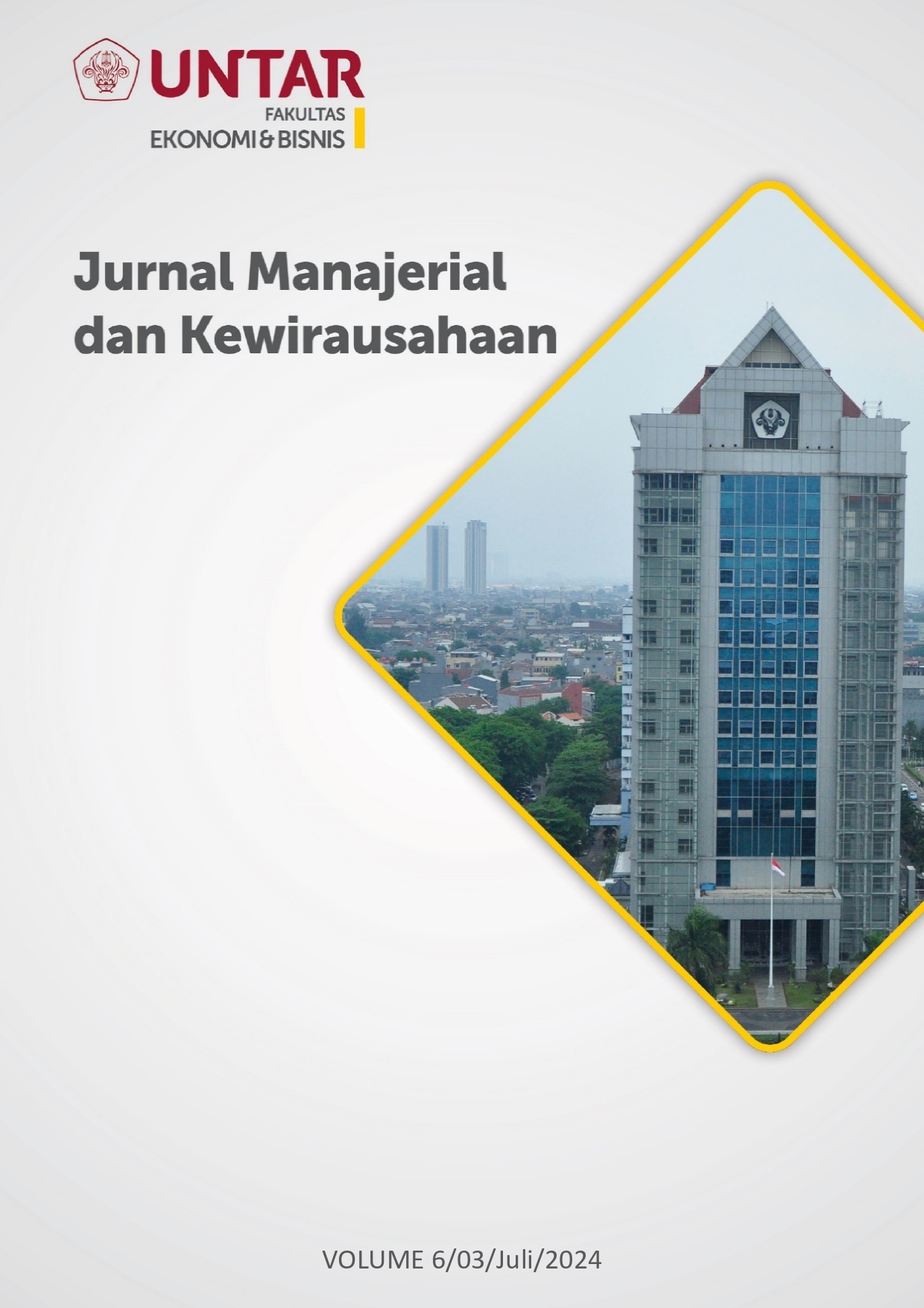Pengaruh Motivasi Kerja, Komunikasi dan Stres Kerja terhadap Kepuasan Kerja Melalui Kompensasi
Main Article Content
Abstract
Human resource management has a very important role in the sustainability of the company. In the face of rapid globalization, employees or members of the organization are required to be able to work efficiently and effectively so that the output provided to the company is in accordance with company expectations. There are several factors that can affect employee job satisfaction, namely work motivation, communication, work stress and compensation. Therefore, this study aims to determine the effect of work motivation, communication, and work stress on job satisfaction with compensation as a mediating variable. The population used in this study is PT XYZ. The method used is quantitative method by collecting data through questionnaires that have been distributed via google form and using purposive sampling techniques in sample selection. The total population as a sample amounted to 125 respondents. To test the validity of researchers using statistical analysis with the SmartPLS 4.0 program. The results of this study are that work motivation has a significant positive effect on job satisfaction. Work motivation has no significant effect on compensation. Communication has a significant positive effect on job satisfaction and compensation. Job stress has no significant effect on job satisfaction, but has a significant negative effect on compensation. In addition, compensation has a significant positive effect on job satisfaction. In addition, compensation has a significant positive effect on job satisfaction. In addition, compensation is unable to mediate work motivation and communication to job satisfaction, and compensation is able to mediate job stress to job satisfaction.
Article Details
Section

This work is licensed under a Creative Commons Attribution-NonCommercial-ShareAlike 4.0 International License.
This work is licensed under a Jurnal Muara Ilmu Ekonomi dan Bisnis Creative Commons Attribution-ShareAlike 4.0 International License.,/p>
References
Hair, J. F., Black, W. C., Babin, B. J., & Anderson, R. E. (2014), Multivariate Data Analysis (7th edition). New Jersey: Pearson Education.
Hair, J. F., Black, W. C., Babin, B. J., & Anderson, R. E. (2019). Multivariate data analysis. New Jersey: Pearson Education.
Hair, J. F., Ringle, C. M., Sarstedt, M., & Hult, G. T. M. (2017). A Primer on Partial Least Squares Structural Equation Modeling (PLS-SEM). Los Angeles: Sage Publications.
Herzberg, F. (1966). Work and The Nature Of Man, Chapter 6.
Luthans, F. (2002). The need for and meaning of positive organizational behavior. Journal of Organizational Behavior: The International Journal of Industrial, Occupational and Organizational Psychology and Behavior, 23(6), 695-706.
Luthans, F. (2011) Organizational Behavior: An Evidence-Based Approach. New
Luthans, F. (2016). Perilaku Organisasi. Dalam D. J. Priansa, Perencanaan dan pengembangan SDM. Bandung: Alfabeta.
Newman, J. & Beehr, T. “Personal and Organizational Strategies for Handling Job Stress: A Review of Research and Opinion”, Personnel Psychology 1979; Spring: 1-44.
Yanuar, Y. (2017). Compensation, Motivation and Performance of Employees: Evidence from Indonesia. Journal of Economic & Management Perspectives, 11(4), 486-492.
Yanuar, Y. & Fauziek, E. (2021). Pengaruh Kepuasan Kerja terhadap Kinerja Karyawan dengan Stres Kerja sebagai Variabel Mediasi. Jurnal Manajerial dan Kewirausahaan, 3(3), 680-687. https://doi.org/10.24912/jmk.v3i3.13155

